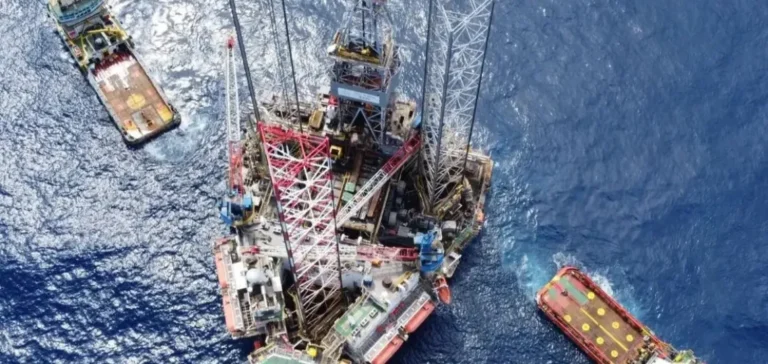Talos Energy has announced a major discovery at the Daenerys prospect, located in the Walker Ridge deepwater area of the Gulf of Mexico. According to Wood Mackenzie, this discovery could add more than 50 million barrels of oil equivalent (boe) net proved reserves, representing an increase of more than 25% compared with the 194 million boe held at the end of 2024. It is the company’s largest discovery in the region to date.
A well drilled ahead of schedule and under budget
The well was drilled to a total vertical depth of 33,228 feet, completed twelve days ahead of schedule and $16 million under budget. This operational performance highlights the efficiency of the Talos-led consortium. Early estimates suggest a peak production potential of 65,000 barrels per day, a level that would position the Daenerys field among the most significant in the Gulf since Shell’s Whale discovery in 2017.
A strategic shift for Talos
The company, previously focused on lower-risk infrastructure-led exploration projects, is now pursuing a more ambitious approach with Daenerys. Two additional projects, Enterprise and Hershey, each with pre-drill estimates exceeding 100 million boe, underline this strategic shift. This development comes amid a dynamic exploration year in 2025, also marked by bp’s Far South discovery.
Regional outlook and stakes
The project could be developed via a 24-mile tieback to the Heidelberg field operated by Occidental Petroleum, or justify the creation of a new hub, with a net present value of $745 million and an internal rate of return of 18% based on Brent crude at $65 per barrel. Shell holds a minority stake in the project, reinforcing confidence in the discovery.
A signal for future campaigns
Wood Mackenzie noted that this breakthrough comes just ahead of a lease sale scheduled for December. Analyst Adrian Tjokro stated that confirmation of major deposits in the subsalt Miocene trend could intensify competition among companies for this area. According to him, Daenerys marks the return of discoveries exceeding 100 million boe in the region after several years of absence.






















